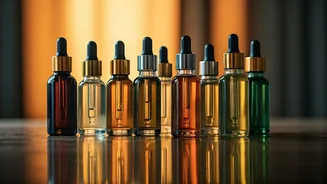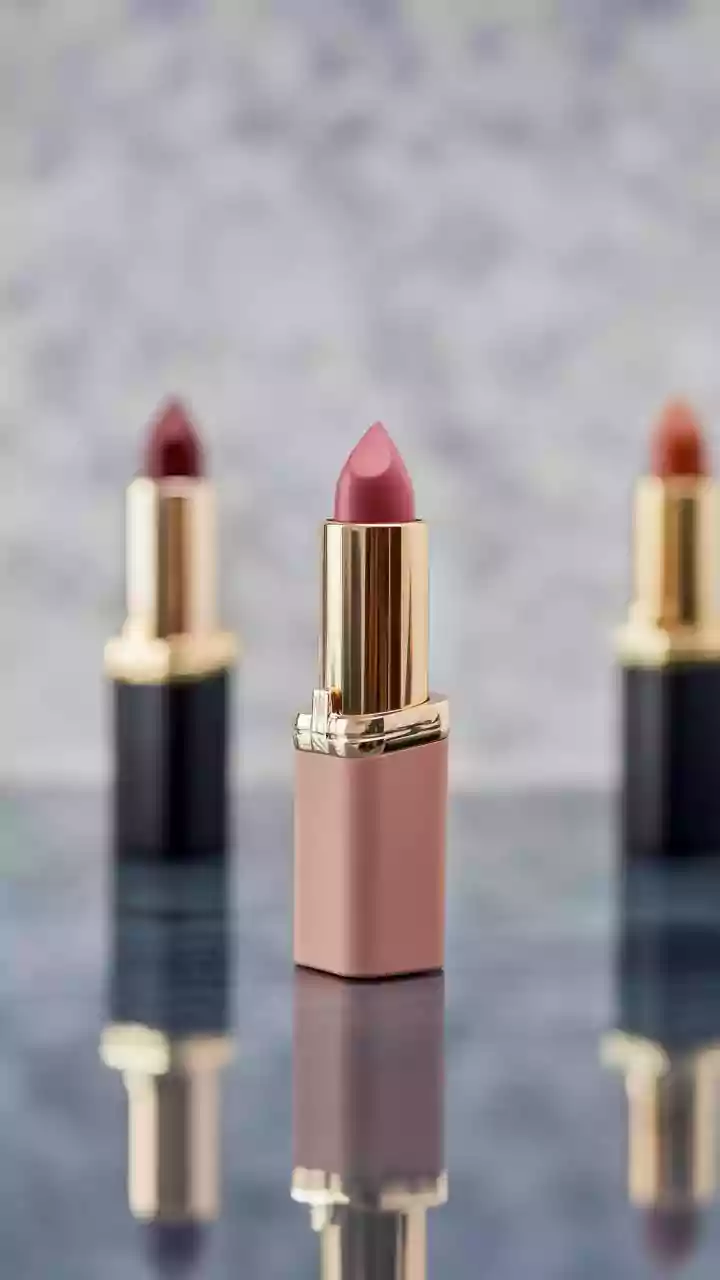Argan Oil's Magic
Argan oil, often hailed as 'liquid gold,' is a true multitasker. Sourced from the kernels of the argan tree, it's rich in vitamin E, antioxidants, and
essential fatty acids. These components work in harmony to hydrate the scalp, reduce frizz, and protect hair from damage caused by heat and styling. Regular use can lead to improved elasticity, reduced breakage, and enhanced shine, making your hair look healthier and more vibrant. Argan oil is particularly effective for those with dry or damaged hair, as it deeply conditions and moisturizes, promoting overall hair health and facilitating natural hair growth. Application is simple: a few drops massaged into your hair, focusing on the ends, or as a pre-shampoo treatment for deeper conditioning.
Coconut Oil Power
Coconut oil has long been a staple in hair care routines, and for good reason. It penetrates the hair shaft more effectively than many other oils, preventing protein loss and reducing breakage. The medium-chain fatty acids in coconut oil provide deep conditioning, leaving hair feeling soft and smooth. It also has natural antifungal and antibacterial properties, which can help maintain a healthy scalp, supporting hair growth. To use coconut oil effectively, apply it before washing, leave it on for 30 minutes to a few hours, or even overnight, for a deep conditioning treatment. Be sure to use a small amount to avoid greasy hair, especially if you have fine hair. The regular use of coconut oil promotes strength and shine.
Jojoba Oil Benefits
Jojoba oil is a liquid wax that closely resembles the natural sebum produced by our scalps. This similarity allows it to effectively moisturize the scalp and hair without leaving a greasy residue. It’s rich in vitamins and minerals like vitamin E, B-complex vitamins, iodine, and zinc, all crucial for hair health. Jojoba oil is excellent for regulating oil production, making it suitable for all hair types. It helps to unclog hair follicles, which encourages hair growth. To incorporate it into your routine, apply a few drops to your scalp and hair, massaging gently to stimulate circulation. Using jojoba oil can add shine, reduce dryness, and keep hair soft and manageable. This oil is particularly beneficial for those with oily scalps or who are prone to dandruff.
Castor Oil's Growth
Castor oil is renowned for its potential to stimulate hair growth. It's rich in ricinoleic acid, a fatty acid believed to enhance blood circulation to the scalp, thereby nourishing hair follicles and promoting hair growth. Castor oil also possesses moisturizing properties that can hydrate the hair shaft and reduce split ends and breakage. When using castor oil, it’s best to combine it with a lighter oil, such as coconut or jojoba oil, due to its thick consistency. Apply it to the scalp and hair, massaging gently to ensure even distribution and stimulation. Regular use may contribute to thicker, fuller hair, and can also help with issues such as dandruff and scalp irritation. Remember to apply it sparingly to avoid excessive greasiness.
Almond Oil's Nourishment
Almond oil is a light, easily absorbed oil that provides intense nourishment. It's packed with vitamin E, magnesium, and essential fatty acids, all of which contribute to hair health. The vitamin E acts as an antioxidant, protecting hair from environmental damage, while magnesium strengthens hair strands. Almond oil can also improve the overall texture of hair, making it smoother and more manageable. To use almond oil, warm a small amount between your palms and massage it into your scalp and hair. This will stimulate blood flow and help the oil penetrate. Regular application can lead to stronger, shinier, and less brittle hair. It is a particularly good option for those seeking a gentle and effective daily hair treatment.
Olive Oil's Shine
Olive oil is a kitchen staple that doubles as an effective hair treatment. This oil is rich in antioxidants and monounsaturated fats, providing deep conditioning and adding shine. It can help strengthen hair strands, reducing breakage and split ends. Olive oil’s ability to penetrate the hair shaft makes it an excellent moisturizer, especially for dry and damaged hair. Before washing your hair, apply olive oil generously, leaving it on for about 30 minutes to an hour. You can enhance the effect by wrapping your hair in a warm towel. This allows the oil to penetrate deeply, providing hydration and restoring moisture. Using olive oil can leave your hair looking vibrant, with a healthy sheen, and improved overall texture.
Rosemary Oil's Boost
Rosemary oil is known for its potential to stimulate hair growth. When applied to the scalp, it can improve blood circulation and reduce hair loss. It’s often used in treatments to combat thinning hair and promote new growth. In addition, rosemary oil has antimicrobial and anti-inflammatory properties that contribute to a healthier scalp. Before using rosemary oil, dilute it with a carrier oil like coconut or jojoba oil. Massage it into your scalp, leaving it on for 30 minutes to several hours, or overnight for a more intensive treatment. Regular use of rosemary oil can boost hair growth and improve the overall health of the scalp. Consistency is key to achieving optimal results.
Grapeseed Oil's Lightness
Grapeseed oil is a lightweight oil that doesn't weigh down the hair, making it a great option for those with fine or thin hair. It's rich in vitamin E and linoleic acid, which help to moisturize and strengthen hair. Grapeseed oil also has antioxidant properties that protect hair from damage and free radicals. It's easily absorbed and leaves hair feeling soft and manageable. This oil is an excellent choice for a daily treatment. Simply apply a small amount to your hair, focusing on the ends to reduce split ends and add shine. The light texture ensures that your hair doesn't feel greasy, making it a perfect pre-styling treatment. By consistently using grapeseed oil, you can improve hair texture and health.
Tea Tree Oil's Cleanse
Tea tree oil has potent antifungal and antibacterial properties, making it an effective treatment for scalp issues such as dandruff and itchiness. It can help to unclog hair follicles and promote a healthy scalp environment, which is crucial for hair growth. Always dilute tea tree oil with a carrier oil before use, as it can be quite strong on its own. Apply the diluted mixture to your scalp and hair, massaging gently to help it penetrate. Tea tree oil cleanses the scalp and stimulates hair follicles. Regular use of tea tree oil helps combat common scalp issues while promoting a clean, healthy environment for optimal hair growth. This oil is an ideal addition to your hair care regimen.
Avocado Oil's Strength
Avocado oil is rich in vitamins, minerals, and fatty acids that provide intense nourishment and strength to hair. It helps to moisturize the scalp and hair, reducing dryness and breakage. Avocado oil penetrates the hair shaft, improving elasticity and promoting hair growth. For a deep conditioning treatment, apply avocado oil liberally to your hair, leaving it on for at least 30 minutes before washing. It can also be used as a daily treatment, applying a small amount to the ends of your hair to add shine and reduce frizz. The use of avocado oil consistently strengthens and revitalizes your hair, leaving it looking and feeling healthier. Use it on a regular basis for its beneficial results.



















